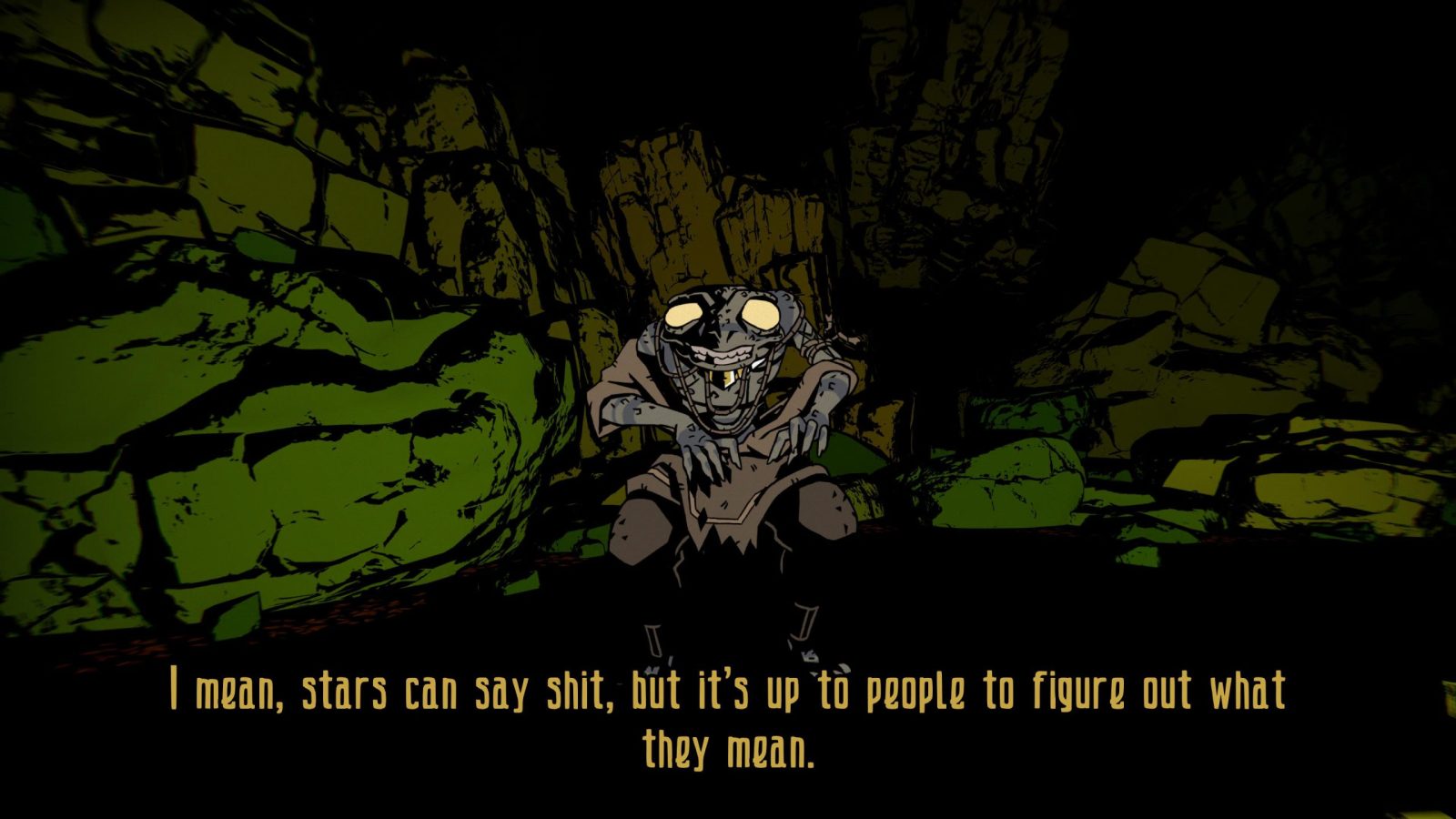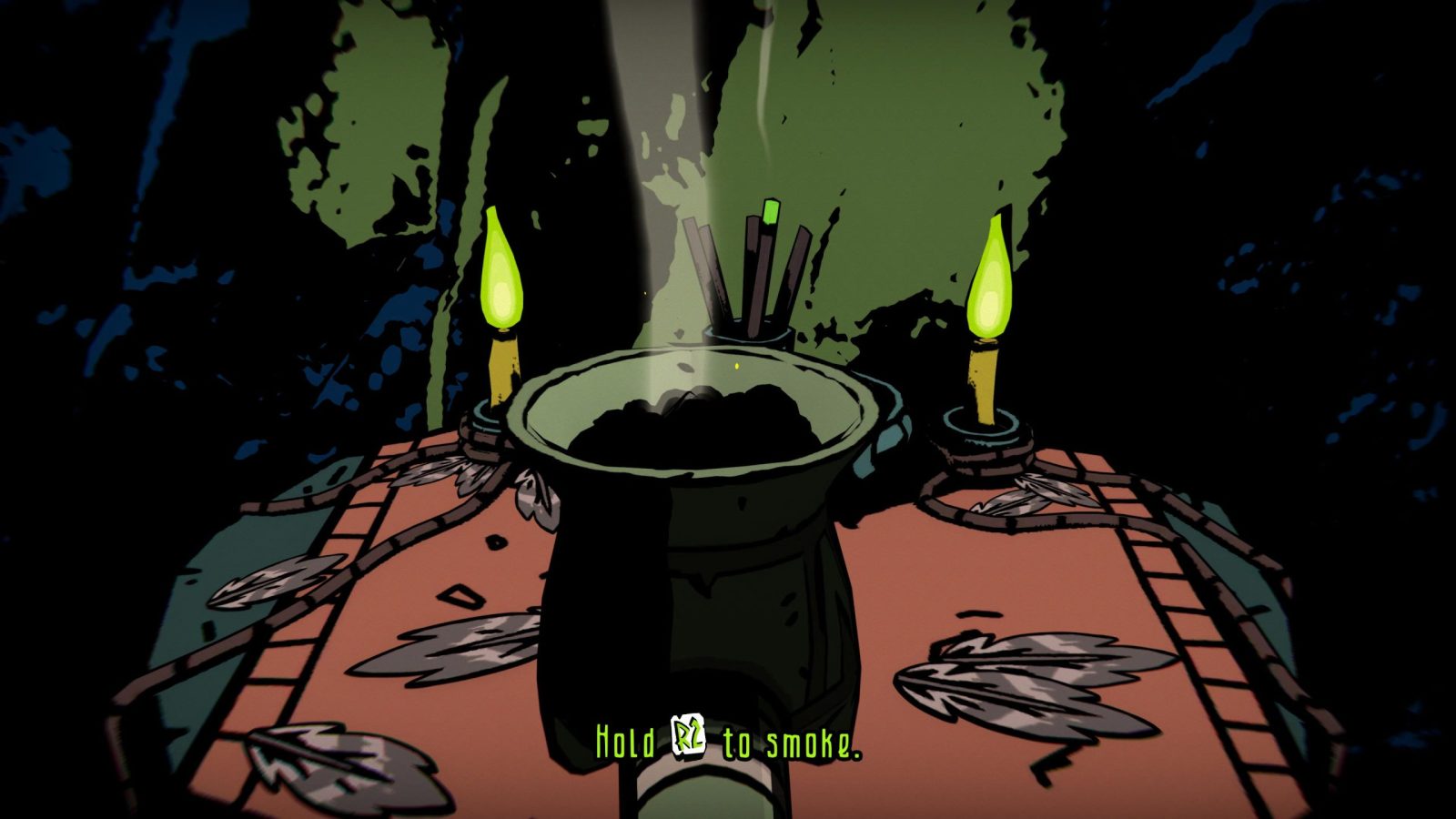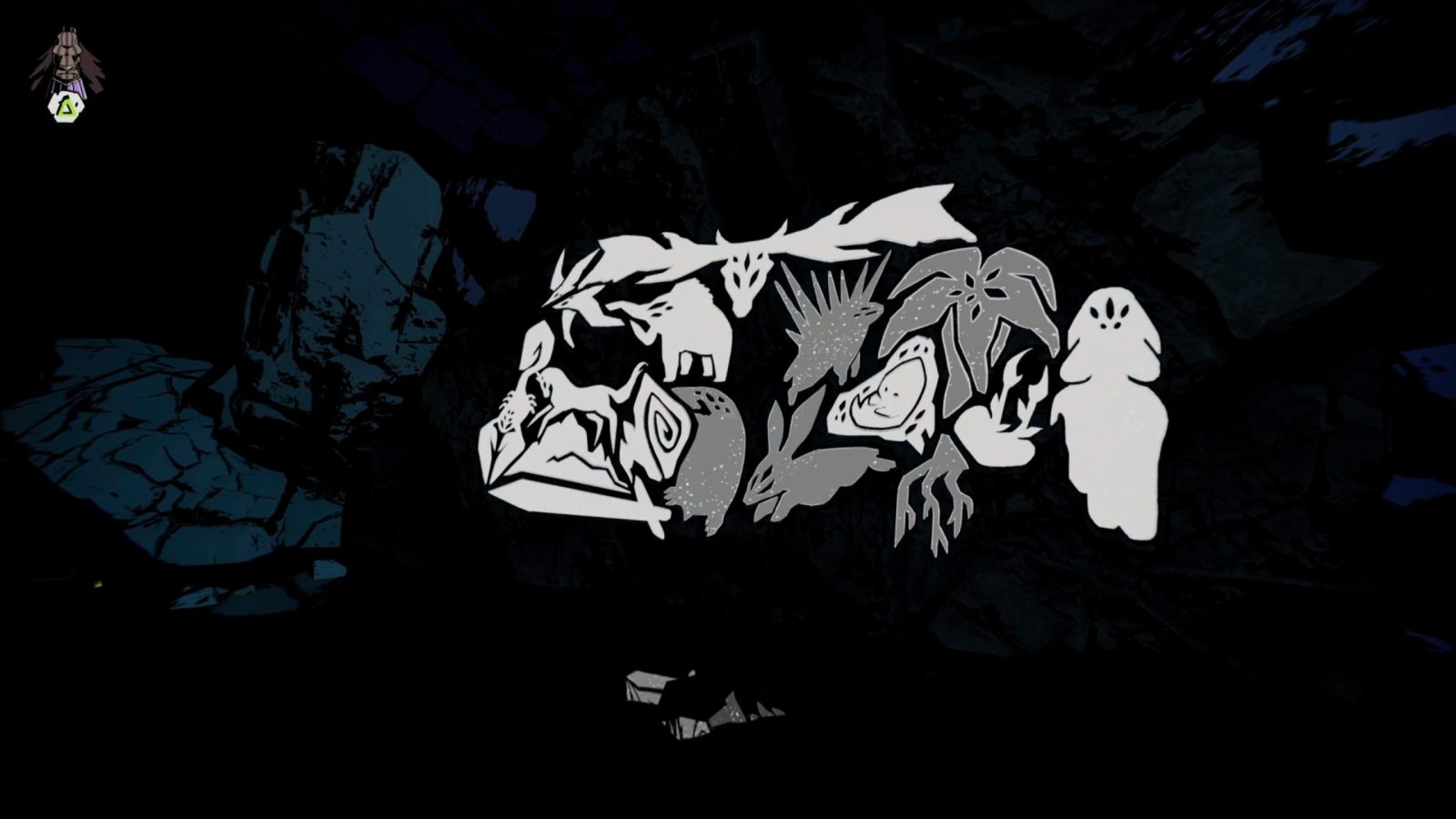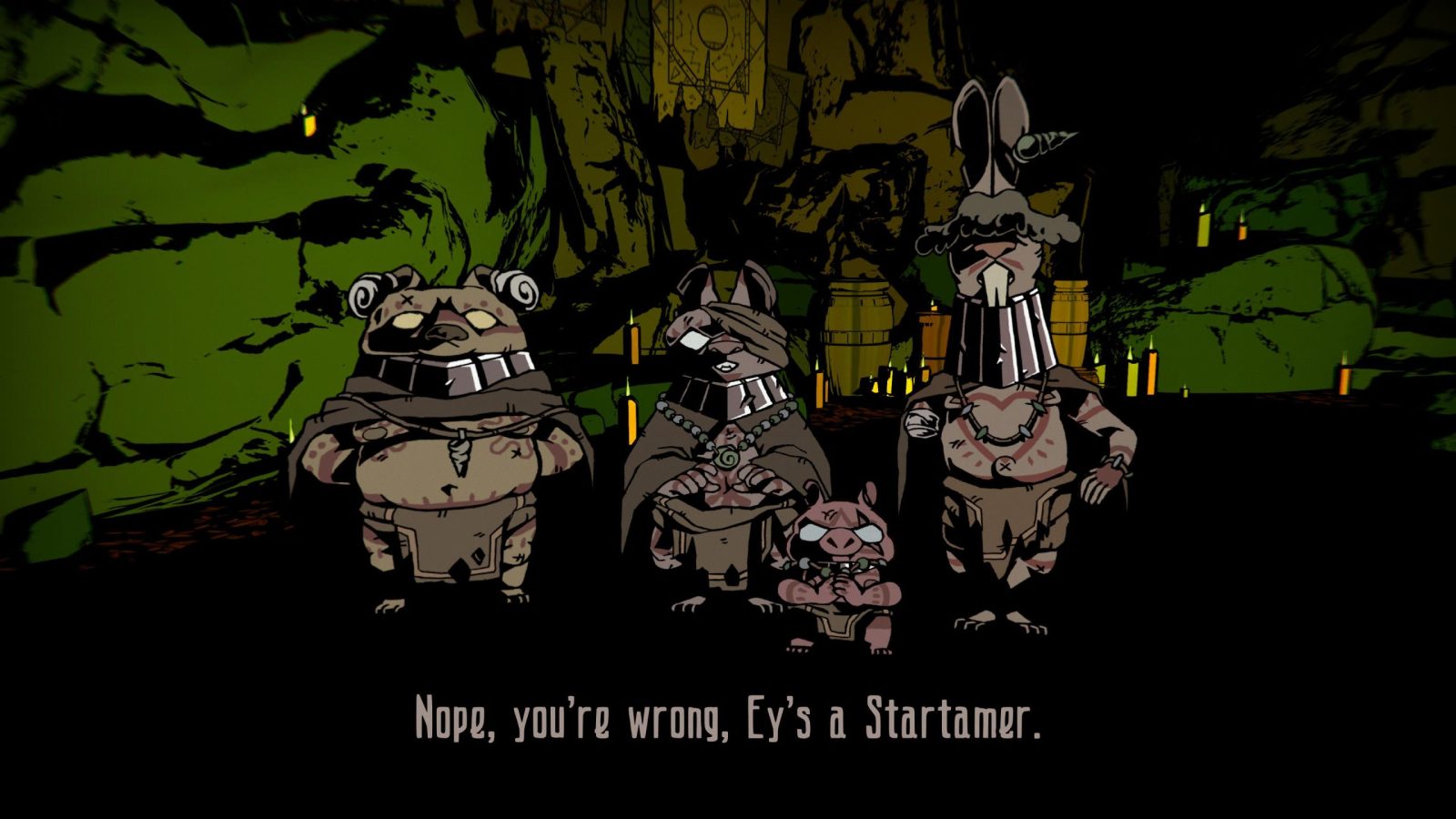Residing in their lonely cave, a star tamer offers wisdom to those who seek it. You are this soothsayer, able to unveil the meaning of the constellations. As the residents of the valley wander through troubling times, they now look to you for guidance, for better or worse.
While your character is a keen listener, they are not much of a talker. The only way you can communicate with those who enter your cave is through constellations drawn in the stars above. While simple on the surface, the depth lies within deciphering meaning from the shapes. What a rabbit or a mountain means to one person may have an entirely different meaning to someone else. This dilemma is the core of the Grotto’s gameplay loop, as you must make assumptions based on not only the question being asked, but on the very person begging the question as well.
Early in the game you are given the advice that telling three people the word ‘blue’ will elicit three separate responses, one may think of the sea, another may think of the sky, and another might be sad, just because. This really is the best piece of advice the game offers you, as communicating through symbols and stars alone rarely gets across your full intentions. Sometimes it can be quite easy to tell how someone might feel about the answer you give them, such as one villager asking for an animal symbol for one choice and any other symbol for a latter choice. However, it won’t always be this easy, with questions beginning to have larger influences on the people living in the surrounding tribes as chieftains come seeking counsel on war efforts or parents seeking knowledge of their missing children. Understanding the people and their plights can be just as important, or meaningless, as the stars themselves making for quite an interesting narrative device.
The stars are not your only source of power, as you’ll slowly unlock new tools to aid your divination. While these don’t add much in terms of mechanics, they are a welcome addition to help you make decisions about which constellations to deliver to each patron. Throwing bones for example will let you hear the opinion of a friend on the other side, or taking a toke from your pipe will allow you to commune with those who have passed. A lot of the time I didn’t find myself really needing these tools very often, but for more esoteric questions, they are certainly a guiding boon.
Despite the highly intriguing narrative vehicle of Grotto, the actual gameplay feels a bit repetitive. Each interaction plays out mostly the same: someone will enter your cave, speak with you for a moment by the fire, you will select a constellation as an answer, and then they leave. It’s a blessing that these characters are all intriguing and varied in their desires, which helps alleviate some of the monotony. Constellations themselves are drawn in the sky through a hole in the roof, but after you’ve completed them, they are stored on the wall for easy access. This means you won’t have to redraw a constellation every time you need it, which thankfully cuts out on the repetition a great deal.
The game tries to shake up this formula by adding the previously mentioned tools and introducing new constellations, but it really doesn’t do much to make the mechanics that much more involved or interesting to engage with. Once I found all the constellation patterns, there really wasn’t anything else to interact with, resorting to me just pacing between my patron and the star chart over and over each day. Having to constantly go back to your tent and start a sleep cutscene between days was also a drag, even if necessary to move the plot forward. I can’t help but wonder if this would have felt better if they had leaned further into the game being a visual novel rather than a tiny 3D space that you can move around in.
The attempt at introducing new constellations was a welcome addition, but in the final third of the game I felt like it was losing some of its value. There comes a point where you change the meaning of old constellations, and make them extremely straight forward rather than having them be more open ended in their interpretations. If this wasn’t disappointing enough, they swiftly get replaced by a new set of constellations soon thereafter, with once again very distinct meanings. Things do eventually get back to normal after a while, but this section of the game did feel less engaging than the rest.
My favorite part of Grotto is how the game makes you an outsider to the narrative unfolding beyond your cave. Normally in narrative experiences like this you are making a clear decision in a branching path, pick option A or option B, and while there are moments like this within Grotto, most of the time you’ll instead be offering nudges in the direction of what you agree with. Sure things might converge back into linear paths, but having so many options to choose from for each dialogue was something I haven’t seen a game like this do before. Even if you offer a constellation with the best intentions, it may still lead you down a path of darkness, or have an outcome you never would have predicted. This is because you aren’t the one making the choice, you’re only giving input, and you can’t just tell someone how you feel, it’s up to the stars and their interpretation of it. This unique way of storytelling absolutely carries what would otherwise be a pretty dull game, with repetitive mechanics and simple interactions. What really is going to draw you in here is the narrative, and if that’s all you’re hoping for, then this game might just be in the cards for you.

























